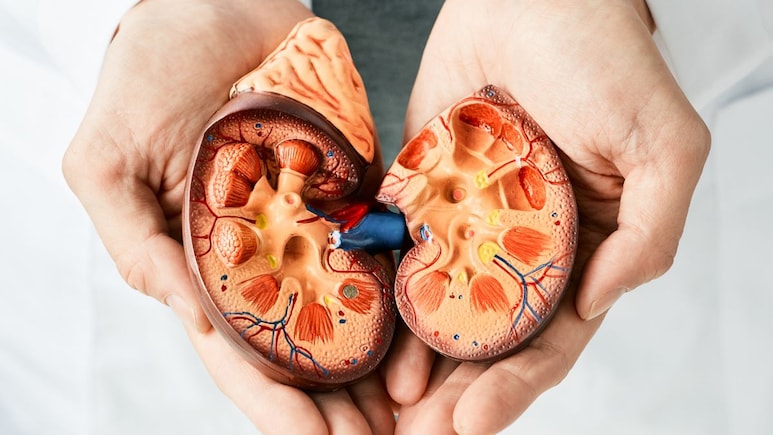
Kidney stones are hard deposits made of minerals and salts that form inside the kidneys. These deposits can be as small as a grain or even larger than 10 mm. This condition can range from being a mild inconvenience to a severely painful experience, with many individuals describing the pain as one of the worst sensations they have ever encountered. Smaller stones can easily pass through your urinary tract in your pee. However, large kidney stones can get trapped and cause severe pain. It can also limit your kidneys' ability to filter waste. Kidney stones are also referred to as renal calculi or nephrolithiasis.
Causes of kidney stones
Kidney stones have become more common ever. Several factors contribute to the formation of kidney stones, including dehydration, high consumption of foods rich in oxalate, protein, and sodium, and excess body weight. Additionally, medical conditions like diabetes, gout, hyperparathyroidism, and inflammatory bowel disease can increase the risk of stones. Genetics can play a significant role.
Symptoms
Severe pain, blood in urine, nausea, vomiting, frequent urination, and cloudy and foul-smelling urine are common symptoms of kidney stones.
When left uncontrolled, kidney stones can lead to frequent UTIs, chronic kidney disease, and severe kidney damage.
Do's and don'ts for kidney stone prevention
Kidney stones have a high recurrence rate. Studies indicate that a significant percentage of people who pass a kidney stone will develop another one. However, implementing lifestyle changes can significantly reduce the risk of developing kidney stones. Here are some important do's and don'ts to follow.
Do's
1. Stay hydrated
Drinking enough water is one of the most effective ways to prevent the development of kidney stones. Water helps dilute the substances in urine that lead to stones. Drinking coconut water also helps prevent stones as it is a great source of potassium.
2. Eat right
Focus on a diet rich in fruits, vegetables, whole grains, and lean proteins while limiting high-oxalate foods.
3. Limit sodium intake
Reducing salt intake can help decrease the amount of calcium in your urine, lowering the risk of stones.
4. Maintain a healthy weight
Obesity or being overweight is one of the risk factors for kidney stones. Aim to reach and maintain a healthy weight through regular exercise and a balanced diet.
5. Monitor your calcium intake
While calcium is essential, it's important to get the right amount from dietary sources rather than supplements unless advised by a doctor. Excessive calcium intake can be harmful to your kidneys.
Don'ts
1. Avoid excessive oxalate-rich foods
Limit foods high in oxalate, such as spinach, beets, and chocolate, especially if you have a history of calcium oxalate stones.
2. Don't overconsume animal protein
Reducing meat and fish intake can help lower the risk, as high protein intake can lead to higher acidity in urine. Stick to lean protein sources.
3. Limit sugary drinks
Sodas and drinks high in sugar can increase the risk of stone formation. Excessive consumption of sugary drinks also increases the risk of several other health conditions, including diabetes, obesity, hypertension and more.
4. Avoid excessive vitamin C
Vitamin C is generally safe and is essential for your health. However, high doses of vitamin C from supplements may increase the risk of kidney stones, particularly in men. It's wise to stick to recommended dietary allowances unless instructed otherwise. Always consult an expert before taking any supplements.
5. Do not delay medical advice
If you experience symptoms of kidney stones, seek medical attention promptly to avoid complications.
Taking these proactive measures can help reduce the risk of kidney stone recurrence and improve quality of life.
Disclaimer: This content including advice provides generic information only. It is in no way a substitute for a qualified medical opinion. Always consult a specialist or your own doctor for more information. NDTV does not claim responsibility for this information.
Track Latest News Live on NDTV.com and get news updates from India and around the world

